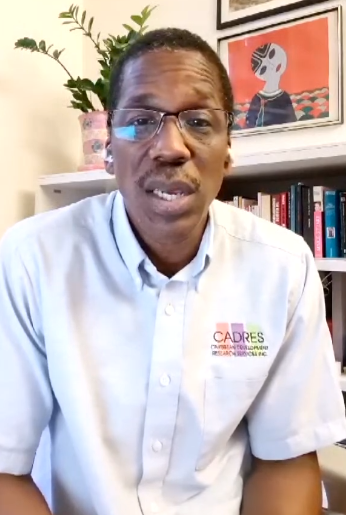Following a closely watched election resulting in Donald Trump’s re-election as the 47th President of the United States on Wednesday, political scientists here are weighing in on the potential impact on the Caribbean and global landscape.
Trump’s presidency was secured in a stunning comeback, defeating Democratic rival Vice President Kamala Harris.
Political analyst Peter Wickham expressed apprehension about the outcome, suggesting that the former president’s isolationist tendencies could negatively impact the Caribbean.
“Going in, I thought that the impact would have been significant if Trump won, and I am still of that opinion now that he has won, that it is going to be a significant impact for the Caribbean and not positive,” Wickham said.
He pointed to the re-elected leader’s history of isolationism, describing his approach as “transactional” and warning that this could mean limited support for the region: “My biggest concern is that the isolationist in him will not have countries wanting to cooperate with the United States because he seems to want to go at it alone.”
Wickham worries this stance will persist, potentially to the detriment of regional diplomacy and US-Caribbean cooperation.
He extended his concerns to the administration’s influence on broader global issues, including the ongoing conflicts in Gaza and Ukraine, which he sees the president-elect as ill-equipped to handle.
“I don’t see him impacting positively on the war in Gaza [or] in Ukraine, and I think that is significant for the global reality,” he said.
The political expert noted that Trump’s re-election symbolises a worrying “stamp of approval” on past divisive policies.
“You now have a convicted felon who is president of the United States…. He can’t get a gun licence, but he is the most powerful man in the world, and that is tragic,” he said.

Dr Kristina Hinds. (FP)
Reflecting on Trump’s time in office previously, Wickham told Barbados TODAY: “The idea of America providing global leadership, in my opinion, is off the table, because I don’t know that there are many countries in the world that would look towards Donald Trump’s leadership.”
Political scientist Devaron Bruce shared his view that the Caribbean may face challenges under this election result, particularly regarding climate change which is a vital issue for small island nations.
“Harris’ presidency would have been better for the region, given the concerns the region tends to have would be issues such as immigration [and] climate change,” he said, further characterising the next president’s stance on climate policy as deeply nationalistic and misaligned with Caribbean needs.
He also noted that Trump’s climate scepticism could bring direct challenges to the region.
Senior lecturer in political science at UWI, Dr Kristina Hinds suggested that while regional US foreign policy towards the Caribbean has historically remained stable, Trump’s stance on other global issues could have ripple effects.
“The results are what they are,” she said. “In terms of implications for Barbados and the Caribbean… I don’t see significant changes if we’re thinking about the foreign policy of the US towards the region.”

Devaron Bruce. (FP)
But she raised concerns about a Trump presidency’s potential impacts on conflicts involving Israel, Gaza, Russia, and Ukraine, saying “there are questions we can ask about how a Trump regime will address” these global challenges.
The election outcome, the political analyst suggested, may also reveal deeper societal divides within the US.
“It says a lot about the American state,” she noted, reflecting on the electorate’s conservative stance on issues of race and gender.
“It may say a little bit about the continuation of racism, perhaps full white supremacy, in the United States of America,” Hinds added, alluding to the challenges faced by candidates like Harris in gaining preferential public acceptance.




